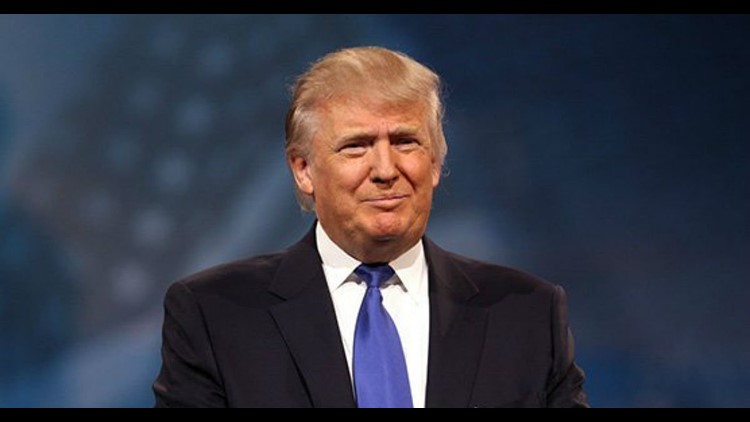WASHINGTON — Immigration negotiators on Capitol Hill were listening closely Wednesday night when President Donald Trump opened the door to citizenship for hundreds of thousands of young immigrants.
They liked what they heard.
“The President is headed in the right direction here,” tweeted Sen. Dick Durbin, the lead Democratic negotiator in the immigration debate on Capitol Hill.
The comment was Trump’s most explicit yet on where he stands on the future for recipients of the expiring Deferred Action for Childhood Arrivals program, the kind of clue lawmakers on Capitol Hill have been urging the President to drop for months now and a moderate stance that lawmakers in the middle of the road have been hoping Trump could embrace.
But what the comment means for negotiations is still uncertain.
Lead negotiators in immigration say the President’s comments represent “leadership,” but whether Trump will stay there is an entirely different question.
“This statement represents presidential leadership on immigration that will allow us to solve a difficult problem,” Sen. Lindsey Graham, a Republican from South Carolina, said in a statement. “I truly appreciate President Trump making it clear that he supports a path to citizenship for DACA recipients. This will greatly help the Senate efforts to craft a proposal which President Trump can sign into law.”
Trump made the comment to reporters Wednesday evening just hours after the White House announced it would release a legislative framework next week that underscored the President’s priorities on an immigration bill. Trump said he was open to giving DACA recipients citizenship over a 10- to 12-year period.
“We’re going to morph into it,” Trump said. “It’s going to happen at some point in the future.”
Still, the significance of the President’s comments wasn’t entirely clear Wednesday. His statement came days after a shutdown and after many Republicans had resigned themselves to the fact that they might have to go it alone on immigration. A group of dozens of bipartisan senators met Wednesday evening to pick their respective leaders for a negotiation among themselves. Democrats chose Durbin and Republicans chose Sen. John Cornyn of Texas to take up the torch and work through a bipartisan immigration bill in lieu of some clear presidential leadership.
Publicly, most acknowledge that Trump’s position on immigration has been in a state of flux ever since he announced last fall that he was ending DACA. Whether that changed Wednesday was an open question.
“I think he’s a person who is susceptible to hearing different arguments and being persuaded by people who are making good arguments, so I think in the end he’s a guy who wants to get to a deal, so I think when people come in and make their case, it sometimes has an effect,” the GOP’s No. 3 Republican, Sen. John Thune of South Dakota, said last week.
Some have blamed Trump’s adviser Stephen Miller, a hard-line conservative on immigration, for pulling the President far to the right on the issue even as moderate Republicans on Capitol Hill have tried to pull Trump to the middle.
During the shutdown, Minority Leader Chuck Schumer, a New York Democrat, lamented that negotiating with Trump was similar to negotiating with Jell-O because his positions could be so fluid.
For Trump — who made his entire campaign about being tough on immigration — accepting a path to citizenship for DACA recipients could bring with it attacks from the right flank of the party, which he’s embraced.
The issue of citizenship has long been fraught with risk for Republicans. Sen. Marco Rubio, a Republican from Florida, struggled to explain his embrace of a Senate immigration bill that had included a path to citizenship for roughly 11 million immigrants in the country. And during his presidential campaign, former Florida Gov. Jeb Bush also wavered on the question of whether he thought immigrants who are in the country illegally deserved a chance at citizenship.
Trump’s statement on citizenship — while promising to some — could shift, and what the President will demand in return for citizenship is also still an unanswered question. Just two weeks ago, the President had said he’d accept any bipartisan immigration deal in a highly publicized meeting, only to skewer a major bipartisan proposal brought to him two days later.



